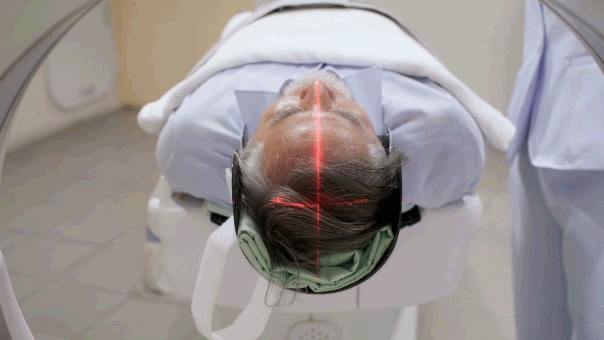The truth about erectile dysfunction
An estimated 30 million men suffer from erectile dysfunction— but the numbers could be even higher because many of them don’t like to talk about it. Sex therapist Dr. Laura Berman helps us sort it all out
It is estimated that over 30 million men suffer from erectile dysfunction. But the real number might actually be higher, as many men with erectile dysfunction are often afraid to come forward and seek help for their condition.
So what exactly is erectile dysfunction (ED)?
ED is a condition in which a man has trouble achieving or maintaining a satisfying erection during sexual activity. It is not just a one- or two-time occurrence, but something that happens on a regular basis and greatly interferes with a man’s sexual pleasure.
Erectile dysfunction can also negatively interfere with a man’s relationship.
After the first few episodes of erectile dysfunction, a man might begin to fear or dread another reoccurrence. He can’t stay in the moment or enjoy sexual activity because he is so worried about what might go wrong. Not only does he not want to disappoint his partner, but he might also feel embarrassed or emasculated by his erectile dysfunction.
Men put a high stock in their sexual performance and their ability to enjoy sex, and sadly, when they encounter difficulty, the issue only compounds as it becomes a self-fulfilling prophecy. The stress and anxiety well only lessens his ability to stay in the moment and enjoy sex, meaning he will be less likely to get and maintain an erection.
As a result, he might avoid sex or turn down his partner’s advances. Meanwhile, she is left wondering what is going on--Is he cheating? Is he no longer attracted to me? Why don’t we ever have sex? Sadly, when many men avoid sex, they also avoid all the trappings of sex, which mean that they stop kissing, cuddling, and being hands-on and affectionate with their partner. Hence, not only is she noticing a decrease in sex, but suddenly she is noticing that he never wants to hold her hand or kiss her anymore. It can be devastating for their relationship as well as for their self-esteem. They will both feel disconnected and depressed as a result.
The solution to this is more communication. Even though it will be difficult at first, it’s absolutely crucial that you talk to your partner about what’s going on. Make her a partner in the bedroom and in solving this issue. Try taking it slow and not focusing on sex or orgasm, but rather on enjoying touch, sensual massage, kissing, self-stimulation, etc. There are many different ways to enjoy intimacy and sexual pleasure, and traditional intercourse is just one of many ways to stay connected.
You might also consider sex aids. Men often think of sex toys as something only women can enjoy, but the truth is that are numerous toys that can men enjoy, and best of all, they can help to improve your sexual response.
It’s also important that you take your lifestyle into account as well. Even though erectile dysfunction has an emotional component, it also has physical causes. Many studies have linked ED to everything from obesity to alcohol abuse to stress to unhealthy lifestyle.
Many men also begin to suffer from erectile dysfunction as they age and experience declining testosterone. In fact, many cases of ED are early warning signs of serious health conditions. Erectile dysfunction can actually be one of the first signs of poor circulation and potential heart disease, so it’s more than just a sexual pleasure issue. It could be one of the first warning signs that your heart health might be at risk. Hence, ignoring ED could not only be bad for your sex life, it could be dangerous for your overall health as you might be ignoring an important red flag from your body.
Vasodilators are a good option to help improve blood flow, so if you find out that poor circulation might be contributing to your decreased erectile function, then a prescription for Viagra or a similar drug might be a good idea. However, Viagra isn’t for everyone, so you should talk to your doctor to find out if you are a good candidate. Some medications can interfere with other medications, so it’s something you should discuss with your care provider. And, exercise is also a crucial part of improving your circulation, so get active every day, even if it is just for a quick walk around the block. Don’t sit chained to your desk all day…get up and take a walk during lunch or have a meeting outside instead of in your conference room.
It’s also important to make sure your medicine cabinet isn’t causing any problems. There are medications that can also interfere with your sexual response. These include medications such as anti-depressants, anti-anxiety meds, beta-blockers, anti-histamines, and hair loss drugs (such as Propecia) among others. However, before you stop taking any medication, you should first talk to your doctor. He or she can help you to find medications that will work for you with less sexual side effects.









































